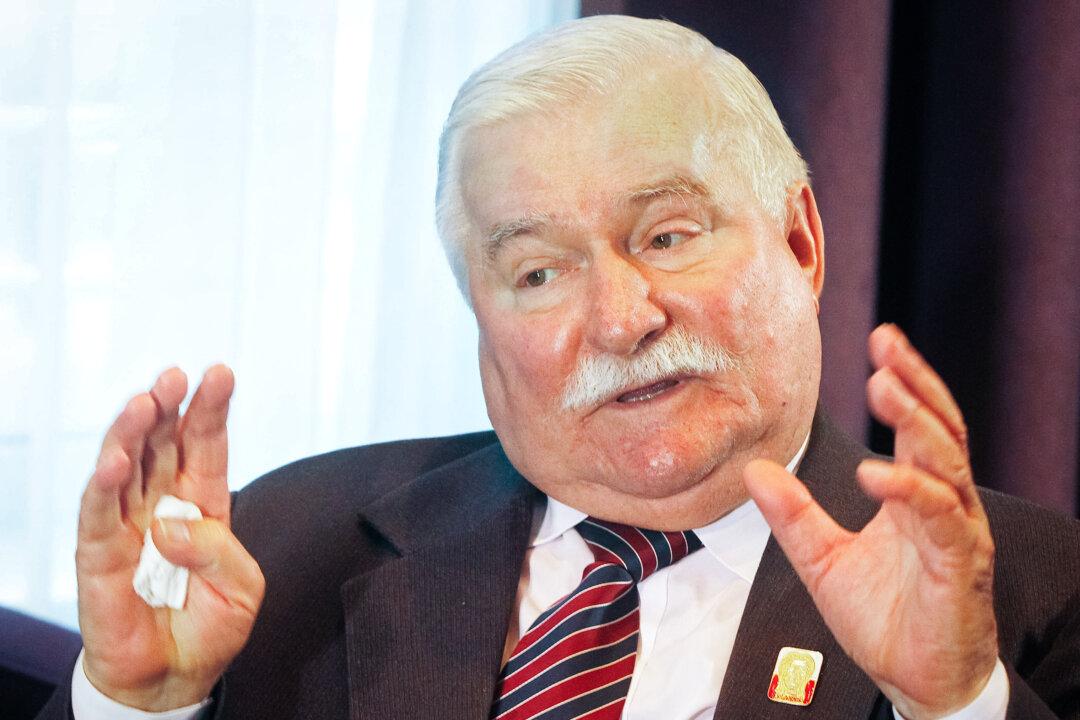The United States must lead the international order to help reform and reintegrate Russia into the global community, according to a former president of Poland.
If the United States fails to lead at this moment, the international order it helped to create could crumble, Lech Walesa—who played a vital role in the overthrow of communism in his country—said during a Feb. 8 talk at the Center for Strategic and International Studies think tank.




